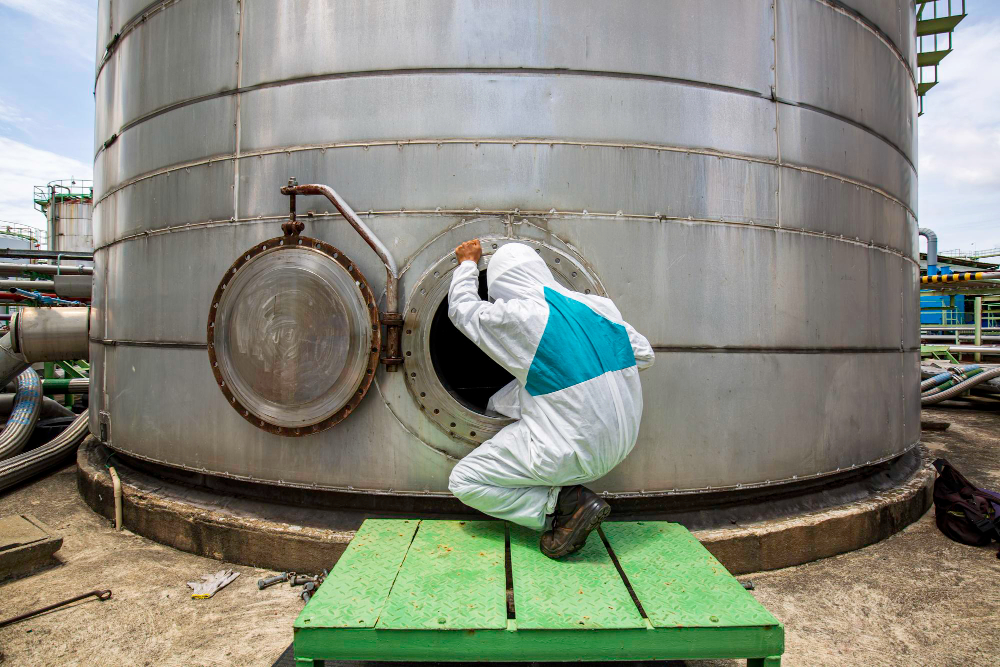Storage Tank Inspection
Storage tank inspection is a crucial aspect of ensuring the integrity, safety, and regulatory compliance of industrial storage tanks. These tanks are used to store various liquids, including petroleum products, chemicals, water, and other substances. Regular inspection and maintenance are essential to identify and address issues such as corrosion, leaks, structural damage, and other factors that could compromise the integrity of the tank and pose risks to the environment, safety, and overall operations.

Benefits
Regular inspection helps detect and address potential leaks or damage that could lead to the release of hazardous substances into the environment. Preventing environmental contamination is essential for protecting ecosystems, groundwater, and surrounding areas.
Storage tank inspection is often mandated by environmental and safety regulations. Adhering to these regulations is crucial for avoiding legal consequences, penalties, and ensuring that the facility meets the necessary standards for environmental protection and safety.
Inspection identifies and addresses potential safety hazards associated with storage tanks. This includes the risk of structural failures, leaks, or other issues that could result in accidents, fires, or explosions. Ensuring the safety of personnel and nearby communities is a primary goal of tank inspection.
Inspection findings guide maintenance planning and help prioritize necessary repairs or upgrades. This proactive approach minimizes downtime, reduces the risk of unplanned shutdowns, and ensures that tanks remain in optimal operating condition.
Regular inspections and maintenance contribute to the longevity of storage tanks. Addressing issues promptly prevents the escalation of damage, corrosion, or other deterioration, leading to an extended service life for the tank and reducing the need for premature replacements.
Early detection of issues through inspections can result in cost savings by addressing problems before they become more extensive and expensive to repair. Preventing major failures and minimizing downtime contribute to overall operational cost efficiency.
Storage tank inspection is a critical component of asset management. It provides valuable data on the condition of tanks, allowing organizations to make informed decisions about repair, replacement, or upgrades. This information is essential for optimizing the performance and reliability of the entire facility.
Assessing and managing risks associated with storage tanks is a key benefit of inspections. By identifying potential risks and implementing corrective measures, organizations can mitigate the likelihood of incidents that could impact safety, the environment, and business operations.
Inspection ensures that storage tanks meet the required quality standards and specifications. This is especially important in industries where the stored substances have specific purity or quality requirements, such as pharmaceuticals or food and beverage production.
Regular inspection and maintenance activities demonstrate a commitment to safety, environmental responsibility, and regulatory compliance. This enhances public and stakeholder confidence in the organization's operations and its commitment to protecting the well-being of the community and the environment.
